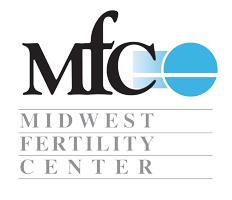Vaccinations have long been heralded as one of the greatest medical advancements in human history, effectively combating and eradicating numerous infectious diseases. However, when it comes to vaccinations during pregnancy, there’s often a cloud of uncertainty and concern. Expectant mothers are understandably cautious about anything that might potentially harm their unborn child. With various opinions circulating, it’s crucial to delve into the science and evidence to answer the burning question: Are vaccinations during pregnancy safe?
The Importance of Vaccinations During Pregnancy
Pregnant women experience physiological changes that can weaken their immune systems, making them more susceptible to certain infections. Additionally, infections during pregnancy can pose serious risks to both the mother and the developing fetus. Vaccinations offer a vital layer of protection by bolstering the mother’s immune response and providing passive immunity to the newborn during the vulnerable early months of life. https://mfcfamily.com/
Common Vaccinations Recommended During Pregnancy
1. **Influenza (Flu) Vaccine**: The influenza virus can lead to severe complications during pregnancy, including pneumonia and preterm labor. The flu vaccine, recommended for all pregnant women, helps safeguard both the mother and the baby.
2. **Tdap Vaccine**: Tdap stands for tetanus, diphtheria, and pertussis (whooping cough). Pregnant women are advised to receive the Tdap vaccine during each pregnancy, preferably between 27 and 36 weeks gestation. This vaccination not only protects the mother from tetanus, diphtheria, and pertussis but also passes immunity to the baby, reducing the risk of pertussis in the first few months of life.
Safety Concerns Addressed
Despite the clear benefits of vaccinations during pregnancy, concerns about safety persist. Here’s a closer look at some of the common worries:
1. **Risk to the Fetus**: Many expectant mothers worry that vaccines might harm their unborn child. However, numerous studies have demonstrated the safety of recommended vaccines during pregnancy. The benefits of vaccination in preventing serious illnesses far outweigh the minimal risks associated with vaccination. https://mfcfamily.com/
2. **Thimerosal**: Thimerosal, a mercury-containing preservative, is a component of some vaccines. However, the amount of mercury in vaccines is extremely low and has not been shown to cause harm to the fetus. Moreover, most vaccines recommended during pregnancy, such as the flu vaccine, are available in thimerosal-free formulations.
3. **Autoimmune Conditions**: Some individuals express concerns that vaccines may trigger autoimmune conditions in susceptible individuals. However, extensive research has not found a causal link between vaccinations during pregnancy and the development of autoimmune diseases in offspring.
Leading health organizations, including the Centers for Disease Control and Prevention (CDC), the American College of Obstetricians and Gynecologists (ACOG), and the World Health Organization (WHO), strongly endorse vaccinations during pregnancy as safe and effective. These recommendations are based on extensive scientific evidence and decades of real-world experience.
In conclusion, vaccinations during pregnancy are a cornerstone of maternal and fetal health. By protecting expectant mothers from serious infections and conferring immunity to newborns, vaccinations play a crucial role in safeguarding the health of both mother and child. While concerns about safety are understandable, the overwhelming consensus among experts is that the benefits of vaccination far outweigh the risks. Expectant mothers should consult with their healthcare providers https://mfcfamily.com/ to make informed decisions about vaccination during pregnancy, ensuring the best possible outcomes for themselves and their babies. Remember, when it comes to protecting the health of your growing family, knowledge truly is power.

